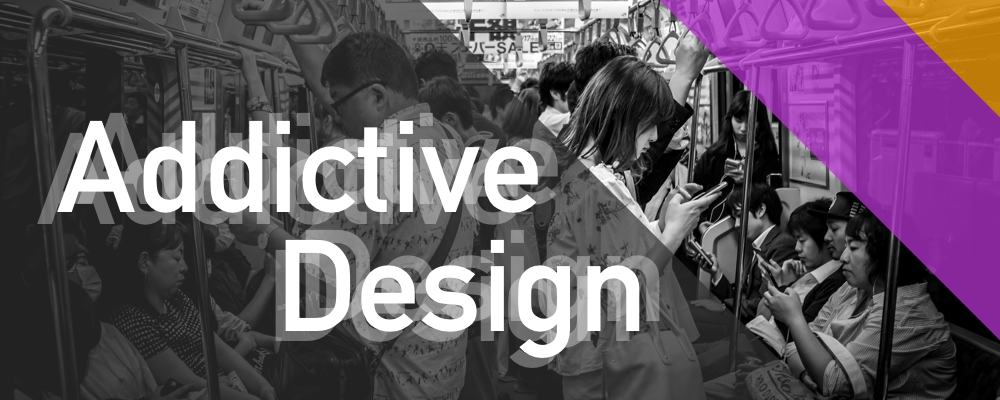As you’re scrolling through your Facebook newsfeed, pause for a moment, breathe and ask yourself: ‘Am I hooked?’ If you said ‘yes’ you’re not alone. If you said ‘no’ then you could be in denial. Why?

As a professional in the tech space for a long time, I’ve noticed the insidious (subtle yet exploitative) ways apps and websites are made to lure users in. They intend to create repeat engagement, more frequently, and for longer periods of time. And you don’t have to look further than Facebook to realise it.
Bringing people to a platform over and over again is good for a company’s bottom dollar and it makes these ‘free’ experiences sustainable. And actually we’ve derived a lot of good from it: look at all the great stuff we have like Google Maps and Translate; even Facebook passively connects us to people around the world. We’ve become supercharged humans at near zero cost.
Except… you very well know there’s a price to pay because it usually feels too good to be true (or maybe not because we’re so numb). That price is paid with something so dear to us and infinitely more limited than money.
I’m talking about time.
That intangible thing that flies faster as we get older and we usually complain there’s never enough of it. That precious resource that enables us to exist as a blink in the history of the universe.
Through quirks of psychology we, the users, allow ourselves to systematically submit to a data sink in exchange for our time that converts financially for the platform stakeholders (which doesn’t include us by the way). It’s no coincidence either that the other connotation for the word ‘user’ is associated with addictive substance abuse. Facebook is simultaneously both the drug and the drug dealer.
We’re hooked because free platforms act like pocket slot machines. The humble mobile phone that liberates us so readily when we’re in need of connection can also betray us at a moment’s notice with a simple red icon or a buzz of a notification. Suddenly, we’re looking at our phone when we should be doing something else. Through operant conditioning, we compelled to keep checking back in case there’s another notification or something else has happened in the world that we absolutely must know about, all to alleviate the fear of missing out (FOMO). ‘Pull down to refresh’ becomes the slot machine arm.
These systems are designed to steal us away from ourselves and we need to take a step back before it gets worse. We’re already seeing immoral conduct by these big tech companies (e.g. Cambridge Analytica) as a result of their grasp on us. They generate more wealth than they know what to do with, all the while evading tax payments to provide social care for the very people they have afflicted. Most importantly, they take our time from us which we can’t get back.
And it’s difficult for most of us because we still need Facebook as a connective tool. Personally, although I use the platform much less than I used to, I’ve decided to reclaim more of my own time by observing my habits and changing how I engage with the platform to prevent addictive behaviour.
As a first drastic and difficult step, I uninstalled Facebook app from my phone. If I feel compelled to look at it, I have access via my browser which I’ve paired with the excellent add on called Newsfeed Eradicator.
This is a neat little browser extension for both Chrome and Firefox that removes the addictive element of the customised and behaviourally exploitative newsfeed. I’ve been using Newsfeed Eradicator recently and although I found it irritating at first, it’s ultimately doing the job it sets out to do. I can still see notifications but I’m divesting my time away from Facebook’s newsfeed which I consider a win.
I know there are people in my friends list who are very invested, will be skeptical to the notion of addiction, and will even extoll that the benefits of using Facebook outweigh the cost. They might be genuinely psychologically strong individuals, or they might not fully and willfully acknowledge the extent of their addiction. And to be honest, which addict does without an intervention?
If you’re a Facebook user, consider this an intervention by me for you: the reader. Try the Newsfeed Eradicator and see how you go. Keep regularly checking in on your habits and remember that you always have better things to do with your time than be on social media.

